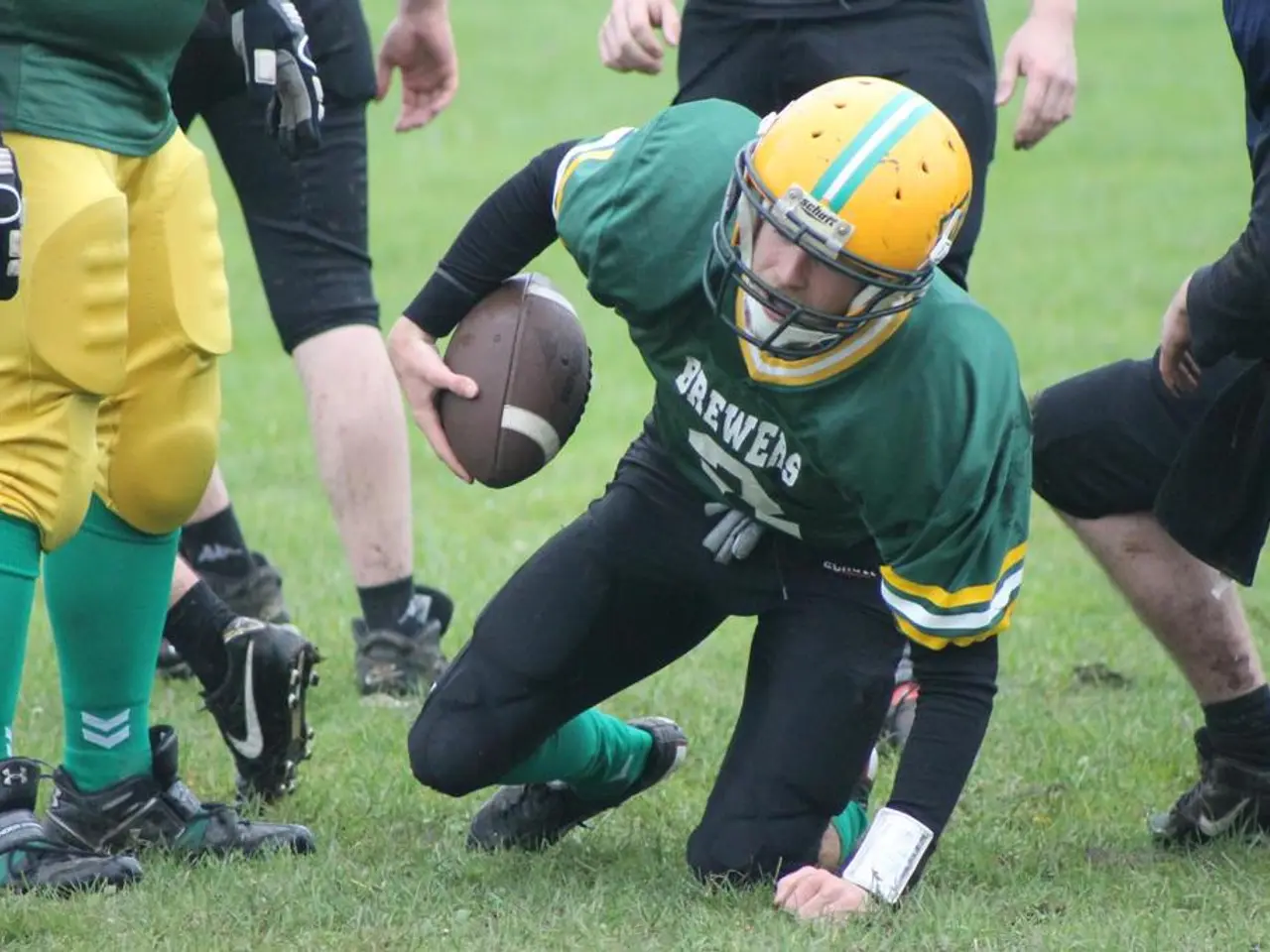Football Player's Note after Shooting Incident Brings Concerns about Chronic Traumatic Encephalopathy Back to the Forefront
In a tragic turn of events, a mass shooting at the National Football League (NFL) headquarters in New York City on Monday marked the deadliest incident of its kind in the city in 25 years. The shooter, Shane Devon Tamura, a former high school running back, entered the building after 6 p.m., armed with an M4 rifle.
The shooting resulted in the death of a New York police officer, Didarul Islam, who was off-duty and working security in the building, as well as three other individuals. An NFL employee was seriously injured but is reported to be in stable condition as of Tuesday.
Tamura, who was a former security guard at a Las Vegas casino, carried a three-page note referring to chronic traumatic encephalopathy (CTE) and a former NFL player, Terry Long. The New York City Office of the Chief Medical Examiner could be called to evaluate Tamura's body for a potential CTE diagnosis, but a full diagnosis could take weeks or months.
Research has long been underway to understand the links between collisions in sports like football, CTE, and violence. Current research shows a strong association between CTE and repeated head impacts in NFL players, with studies finding CTE in nearly 92% of examined former NFL athletes. CTE is linked to symptoms such as memory loss, mood changes, confusion, and difficulties with cognition, which can manifest years after the brain trauma.
Regarding violent behavior and mental health, research, including high-profile cases like former NFL player Aaron Hernandez, suggests CTE may contribute to severe behavioral and psychiatric symptoms, including aggression, impulsivity, depression, and increased risk of suicide. However, definitive causal links between CTE, violent behavior, and mental health disorders remain complex and require further study.
CTE diagnosis is currently only possible post-mortem by identifying distinctive tau protein abnormalities in brain tissue, making prospective study and correlation with behavior challenging. Research continues into mechanisms and clinical presentations to improve understanding, diagnosis, and potential treatments.
In light of these tragic events, the NFL Commissioner, Roger Goodell, issued a note to NFL workers, acknowledging the concerns and offering support. The Concussion Legacy Foundation (CLF) co-founder and CEO, Chris Nowinski, urged people concerned about their mental health and hits to the head to seek care.
The NFL acknowledged a link between football and CTE in 2016. Researchers are studying the long-term neurological consequences of head trauma in football at all levels, emphasizing the urgent need for improved protective measures.
Notably, the New York City Office of the Chief Medical Examiner has participated in past research tied to CTE, including a 2023 study involving brain autopsies of women who experienced intimate partner violence. This underscores the broader implications of CTE research and its potential to shed light on the connections between traumatic brain injuries and violent behavior.
Mayor Eric Adams stated that Tamura likely intended to attack the NFL's offices, which were on a lower floor of the building. The shooting at the office building on 345 Park Avenue in New York City has sent shockwaves through the city and the sports community, highlighting the need for continued dialogue and action on the issue of CTE and its potential links to violent behavior.
[1] Omalu, B. I., & Grant, I. (2016). Chronic traumatic encephalopathy in athletes: Progression, pathophysiology, diagnosis, and management. Journal of Neurotrauma, 33(11), 811-829.
[2] McKee, A. C., Stern, R. A., Nowinski, C. J., Daneshvar, D. H., Bolton, E. S., Liu-Seen-Lin, A., ... & Cantu, R. C. (2013). Chronic traumatic encephalopathy in athletes: diagnosis, management, and treatment. Lancet Neurology, 12(12), 1126-1135.
- Researchers are studying the link between football and mental health concerns, such as chronic traumatic encephalopathy (CTE), which can lead to symptoms like memory loss, mood changes, and increased risk of suicide, even years after brain trauma.
- The Concussion Legacy Foundation (CLF) encourages individuals worried about their mental health or head injuries to seek care, following the tragic shooting at the NFL headquarters in New York City, which has sparked renewed discussions on the importance of understanding and addressing CTE.
- The NFL, in light of the growing body of evidence of CTE and its associations with sports like football, has acknowledged the need for improved protective measures and deeper research into the long-term neurological consequences of head trauma at all levels.




